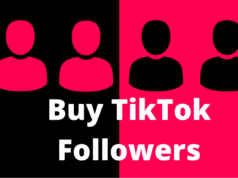
If you want to be more effective in your marketing and advertising efforts, then you first need to identify your ideal customer. Your method of advertising should be able to target your prospective customers to avoid wasting your investment on the wrong audience.
Narrow down your ideal target audience and identify the different buyer personas. A feasible marketing plan can be more efficient if you develop it with the target customer in mind. Here are seven marketing strategies for your business that target your ideal client.
1. Use Niche marketing
If you want to succeed in your small business, then you should first identify your niche. Once you understand your niche, create strategies that focus on that specific niche.
With niche marketing, you can create strategies fit for a particular demographic, geographic, and psychographic customer. Your ideal client could be a specific region or a particular product of a particular price range.
When doing niche marketing, you’ll be targeting a specific audience. Niche marketing helps reduce your market size, minimize competition, and captures the entire target market.
2. Offer Freebies
You can reach and convert more customers if you adapt the tactics that lure them to you. Offering free items is one of the most successful and oldest techniques of marketing. When promoting your products, give freebies to your target audience and then reach out to them with a more improved product for premium plans.
Also, offering free promotional items along with your main product can be a good marketing strategy to increase sales. This strategy involves offering a low-value item together with a high-value one to lure more customers into purchasing the product. This also builds a recall value for your products among the consumers.
3. Take Advantage of Direct Text Messages Marketing
A survey conducted by ScanLife concluded that a significant number of Americans that own a Smartphone are using their mobile phones while shopping. You can maximize your marketing campaign’s success by using SMS marketing strategies.
When you send the right message to the right audience, you increase your probability of conversion. You can segment your clients to be able to send them targeted promotions.
Use the right call to action to help increase customer engagement with your text messages. Also, using bulk messaging can help reach more people within a short period.
If you integrate an SMS API platform, you can send bulk automated messages directly from your platform. It can help you send reminders as well as time-sensitive messages to your prospective customers.
4. Try Email Marketing
Email marketing is a marketing strategy that is quite effective, and you can use it to target your ideal clients. When you send highly personalized content via emails, you can build brand awareness and customer loyalty. Email marketing helps enhance the customer-business relationship.
When creating targeted emails, use powerful and attractive headlines. Research shows that 47% of people choose whether to open the email or not based on the subject line. The title of your email should be able to drive curiosity, create urgency, and communicate the functionality of the message.
Consider segmenting your market depending on the specific needs and preferences of the customers. Then use a marketing automation tool to create and deliver routine emails to a target audience even when away. The tool also helps generate leads, build relationships, and monitor customers.
For example, a Gmail automation tool can help you handle repetitive email tasks. That way, you don’t have to consume a lot of your time answering similar questions, sorting newsletters, or scheduling meetings. You can use that time to do other core business tasks.
5. Get Involved in Direct Response Marketing
Direct response marketing involves reaching out and touching your clients by compelling them to take a specific action or to respond immediately. Creating compelling ads and messages directed at your target audience can help attract your ideal clients.
For example, you can encourage your web visitors to fill in the contact form or subscribe to your emails using opt-ins with a message that they wouldn’t dare miss. You can add a contact form plugin on your WordPress site. When choosing the best contact form plugin for your WordPress website, consider selecting the one that suits your needs and preferences.
Also, if you offer your audience something valuable for free like a guide or an ebook, it can encourage them to join or get started in your funnel as soon as possible. Show your target audience that you understand their pain points and that you have a quick solution that can drive it away more than anything else.
6. Build Partnerships and networking

Building a partnership with a business that offers complementary services is one of the best decisions that can help you reach your target audience. You can team up with such businesses to make use of synergy, which is quite useful when growing a business. For example, if your business offers SEO copywriting services, you can consider teaming up with web designers.
Nurturing networks with complementary business can help you broaden your client base. Also, you can focus on building good relationships with your customers which can encourage them to tell others about you.
7. Leverage on Social Media
The social media strategy is another effective strategy to use when advertising your business to your ideal client. Promoting your business on Facebook, Instagram, or Pinterest can be one of the cheapest and the best ways to reach your target audience.
For example, on Facebook, you can create a page or a group for your business. Then, use Facebook ads to reach your target audience. When creating the ad, make sure that you have specified your target audience. For instance, you can target females between the ages of 20 to 50 years who are located in a particular geographical region.








